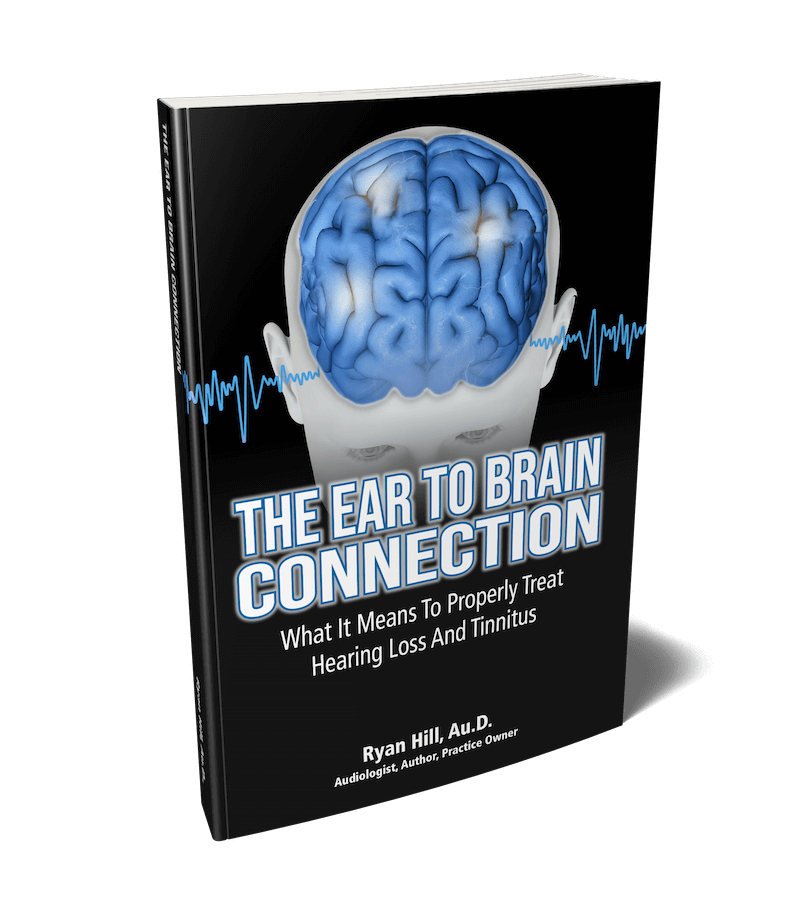How to break the news
By: Brandi Raycheck, Au.D.

With the holiday season upon us and family gatherings near, do you know of someone in your friends and family circle that gets anxious to be at family functions? Do you know someone that secludes themselves away from the conversation when family gets together? We all probably can think of at least one person.
In the last several years research has shown 1 in 4 people between 65 and 74 and 5 in 10 people over the age of 75 have a significant hearing loss. These are staggering numbers. Because hearing loss typically progresses very gradually many of these people may not realize how much it has actually changed their lives. Even if they do notice more and more difficulty, getting them to admit they need help can be a huge step. Here is some advice to make sure your loved one really hears what you?re trying to tell them.
- Make it a process
Don?t bully your loved one into getting hearing aids before they are ready. Make sure you really consider what you want to say and how you want to say it. Think about how the person might respond to what you have to say. Let the conversation move at its own pace and don?t rush it. It could take weeks or months of conversation for the person to even admit or realize a hearing problem. - Pick your time for the conversation
Make sure your loved one is relaxed and alone. This is a personal ordeal and someone with a hearing loss can be feeling isolated, depressed, or anxious from not being able to hear. This is especially true after family or social gatherings so It?s best to find some time for a one-on-one conversation with no other noise so that they can hear you and give feedback in the conversation. - Be direct and provide clear examples
It?s not a good idea to allude to the fact that you think a loved one may have a hearing loss, it?s best to be direct. However, being direct does not have to impersonal or rude. It can be as simple as ?Dad, I don?t think you?re hearing as well as you should, and I would like to talk to you about it and figure out how we can work this out together.? Think of a few clear examples to provide to your loved one like the TV always being too loud or the fact that you feel you always have to repeat yourself in conversation. - Acknowledge Their Concerns
Some people may be in denial and others just don?t want to feel like they are getting older. Whatever their concerns are, be compassionate and let them know you understand how difficult it must be, but that help is not far away. Help your loved one talk through their concern and really figure out what is holding them back. - Offer what?s next
Talk to your loved one about getting tested and offer to accompany them to the appointment. Sometimes going it alone may frighten some people. Find information on providers in your area (preferably The Hill Hear Better Clinic ????), information on hearing loss treatments, and maybe even what the evaluation process involves so that your loved one can feel comfortable when they attend their appointment. - Know that the process doesn?t end with hearing aids
If you?ve made it this far, congratulations, you?re loved one is on their way to a better quality of life! If they?re not already seeing the benefits of their new ears and experiencing some frustration help to remind them that this is a new experience and that they are adjusting to the hearing aids. Offer encouragement and motivation and let them know when they heard something they may not have heard prior to being treated. Stick by their side and continue to advocate. If they have concerns, take them seriously, write them down, and address them at the next appointment with your hearing care provider!
Getting someone to admit they have a hearing loss is often the hardest part of the whole process, but if you?re genuine, compassionate, and helpful, the process can be made much easier for all parties involved! You can also feel good about your advocacy because wearing hearing aids (with hearing loss) can help decrease the risk for diseases like Alzheimer?s and Dementia.
If you know someone that has a hearing loss, take your time, be considerate, and get them tested!
If you want compassionate, personal, and professional care, bring them to The Hill Hear Better Clinic where we will take our time and be very considerate of their individual needs!

